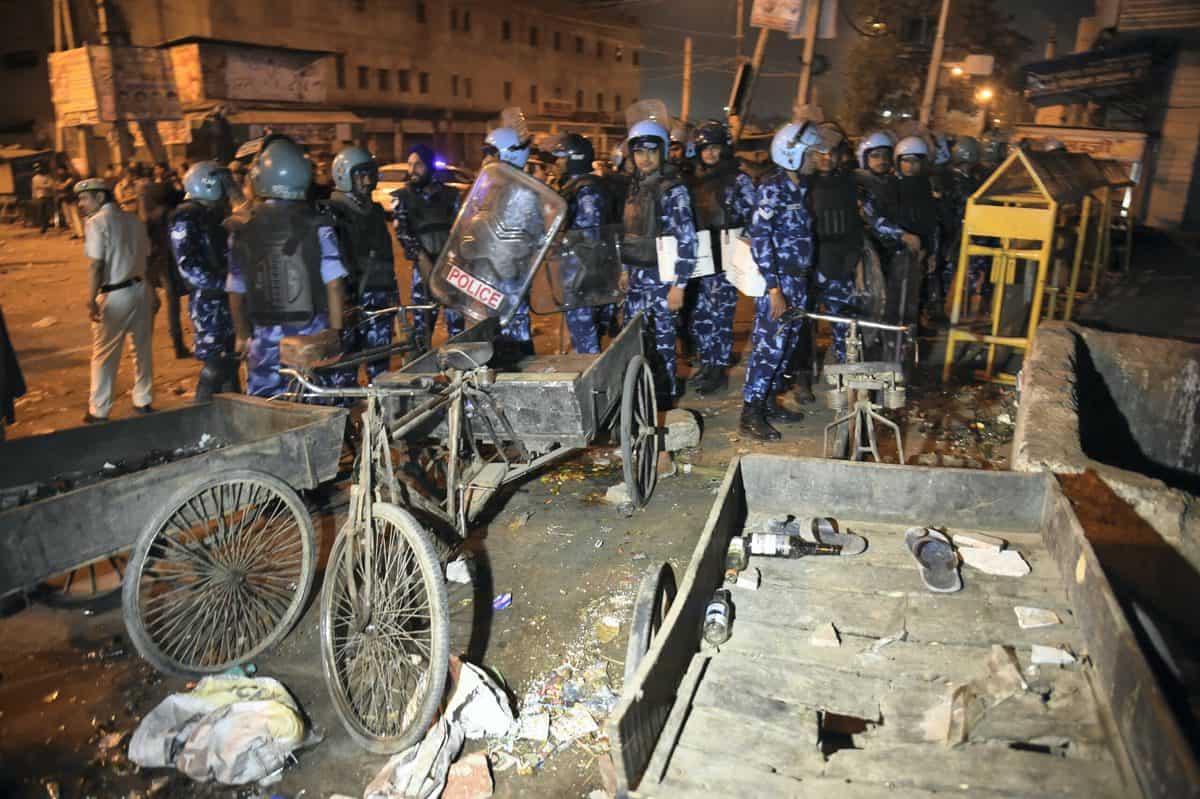
New Delhi: Scores of women domestic helps in Jahangirpuri lost their jobs after communal clashes broke last year and have been unable to pick up the pieces of their lives, with many compelled to hide their religious identity to find work.
Communal distrust runs deep in the northwest Delhi area since the violence in April as many women from violence-hit C-Block claimed that they face discrimination.
They claimed that an anti-encroachment drive in the same month added to their woes with several makeshift shops, many run by women, demolished.
Nine months have passed since the clashes and the bulldozing of shops, but “we are still to rebuild our lives and repay the loans we took to survive”, said a woman from a minority community.
“We always faced unfair treatment because of our religion but the situation deteriorated after the violence,” she told PTI, requesting anonymity.
There are several instances of women who to get jobs as domestic helps have had to hide their identity by changing their names, the woman claimed, adding that “houses of people from the majority community stopped giving her sister work”.
“Hindus and Muslims in Jahangirpuri have lived peacefully for years, even after the violence. However, minorities here, especially women (from the community), still face discrimination and unfair treatment when it comes to work,” the woman said.
“My sister, who works as a domestic help in Rohini, stopped getting work from houses of people of the majority community,” she said.
The woman’s 34-year-old sister, a mother of three, is the sole earner of her family after she separated from her husband few years ago.
NGO Miles 2 Smile, which helped families whose makeshift shops were demolished in the anti-encroachment drive, estimates that in areas of C-Block where it worked, around 70 to 80 women have jobs of domestic helps.
More than 160 people were affected financially after the demolitions, the organisation’s director, Asif Mujtaba, said.
The anti-encroachment drive by authorities drew flak from several quarters as it continued for one and a half hours even after the Supreme Court directed it be stopped.
Mujtaba also said that “around 80 per cent of women, who live in the violence-hit area of Jahangirpur, work either at their makeshift shops or as domestic helps”.
“The women who work as domestic helps have been changing their names and do not wear the ‘hijab’, in order to avoid being judged for their religious identity,” he said.
Getting work as a house help became difficult due to Covid in 2020 and the situation turned worse after the violence, a 60-year-old woman, whose daughter also works as a domestic help, said.
Discrimination is nothing new but it increased after the clashes, she claimed.
The communal clashes broke out during a Hanuman Jayanti procession and eight police personnel and a local were injured.
The elderly woman said her daughter is the sole earner of the family and her husband is an alcoholic.
“My daughter has been working as a house help for several years and runs her family alone. Her income reduced after the lockdown due to Covid in 2020 and when the (Covid) situation gradually started getting back to normal, the clashes took place in our area,” she said.
“We did not step out of our houses for almost a month during that time and suffered major financial loss. My daughter also stopped going to some of the houses where she worked as a help. She was let go without any explanation by several houses that belong to the majority community,” the woman, who did not want to be named, said.
Human rights activist Kavita Krishnan said that “we, as a society, need to stop denying the existence of widespread discrimination based on faith, caste and class.” Discrimination against Muslim workers is “rife all over Delhi-NCR”, she claimed.
Krishnan said that there should be vigorous public discussion around the issue.
“Sadly, the National Minorities Commission doesn’t take up such issues. What we need is for people who discriminate, to be held to account and also, we need to have vigorous public discussions around this issue,” she told PTI.
(Except for the headline, this story has not been edited by Siasat staff and is published from a syndicated feed.)
